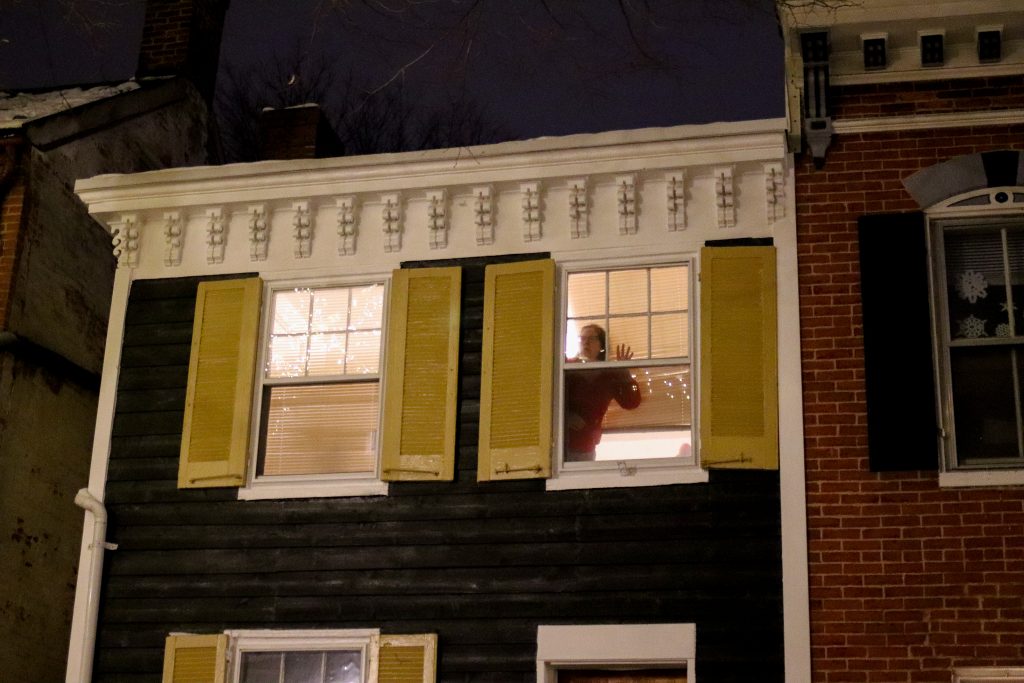Story and photos by Madison Muller
The Hall County, Georgia, Sheriff’s Department has detained undocumented immigrants on behalf of the U.S. Immigration and Customs Enforcement (ICE) since 2008 as part of the county’s 287(g) agreement. Participating sheriffs say the program has led to the capture of dangerous criminals. Immigrants and their advocates have widely condemned the partnerships, saying they lead to racial profiling and the disproportionate targeting of immigrants for low-level crimes, such as traffic violations.


An undocumented man in Hall County said he has feared that seeking medical attention or performing daily tasks, such as grocery shopping, could result in his detainment and deportation.

El Carreton Taqueria, a brightly colored taco stand along Atlanta Highway has been serving a mix of authentic favorites since it opened in 1994. It’s part of the area known as “Little Mexico.”

Newspaper stands along Atlanta Highway in Gainesville, Georgia, the Hall County seat and home of thousands of immigrants, distribute Spanish-language newspapers. The area has been dubbed “Little Mexico” by residents because it has become a hub for the city’s Latinx community.

A 9-year-old watches his family members play volleyball outside his home in Gainesville. The boy’s mother worked at a local poultry plant before taking a job as a taxi driver. Taxicabs are popular in Gainesville, where many undocumented people live and work, because Georgia prohibits undocumented people from obtaining driver’s licenses.
A sign advertises employment opportunities at Foundation Food Group, one of Hall County’s many poultry plants. The ad stands next to a memorial for six employees killed in a liquid nitrogen leak inside the plant in January. Immigration advocacy groups say five of the employees were undocumented. According to a statement from the U.S. Chemical Safety and Hazard Investigation Board in February, “The plant had been experiencing unresolved operational issues on the chicken conveyor that appear to have resulted in the accidental release of liquid nitrogen.” In a statement to Atlanta Journal-Constitution, Foundation Food Group said it trains employees for emergencies and is “committed to taking any additional measures necessary to further ensure the safety of our employees.”
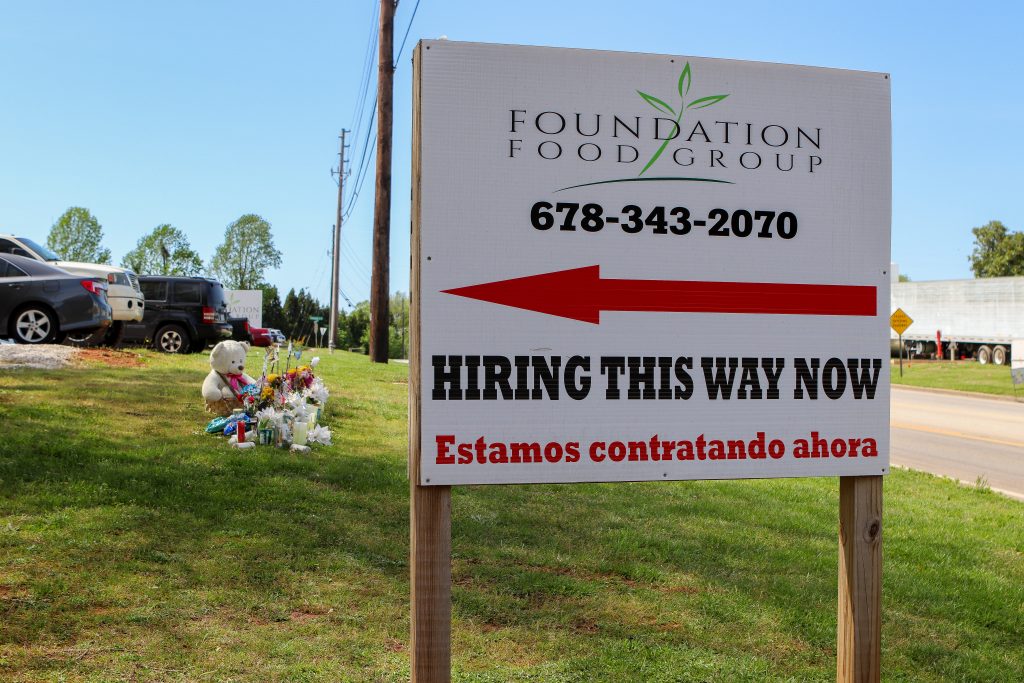
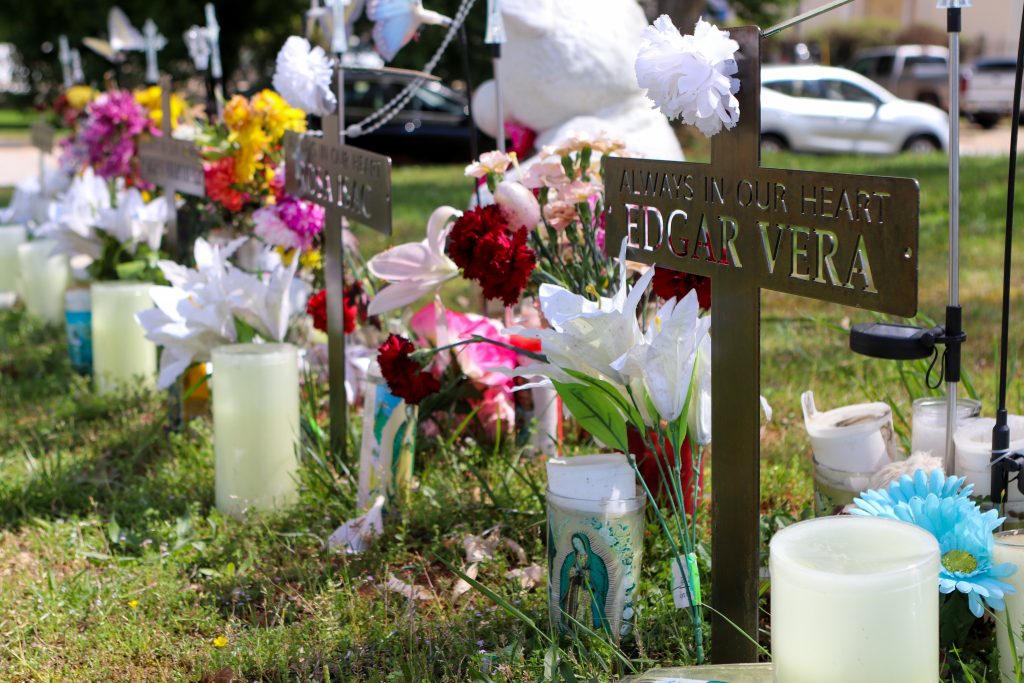
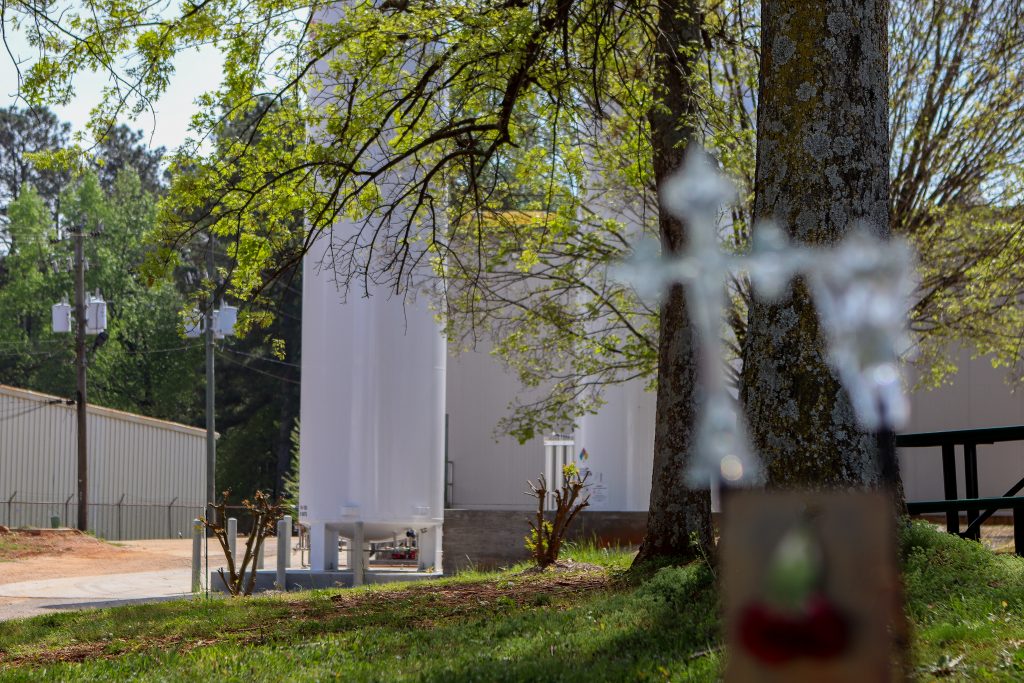
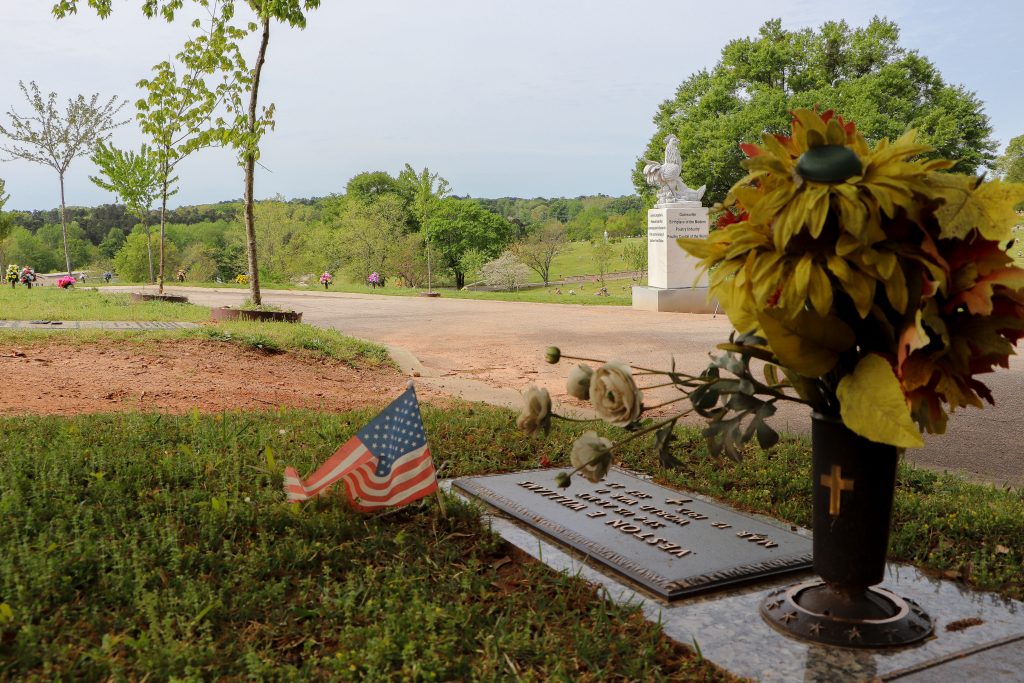
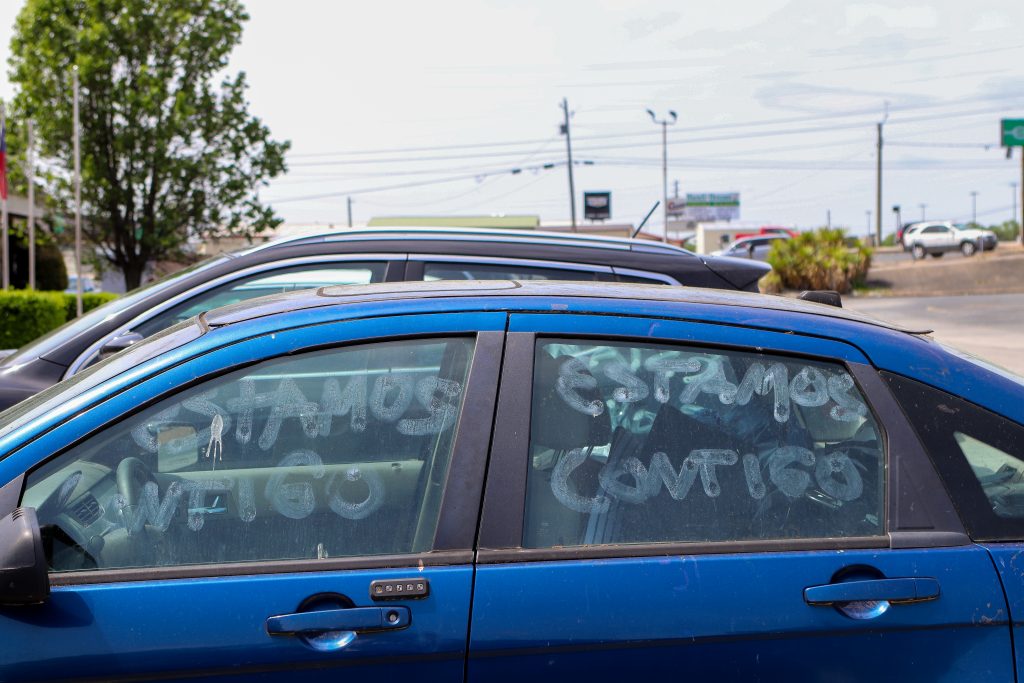
A car parked outside the Gainesville office of GA Familias Unidas, an immigrant advocacy group, reads, “estamos contigo,” — “we are with you.” GA Familias Unidas provides support and resources for the Latino community, many of whom work in the city’s poultry plants.
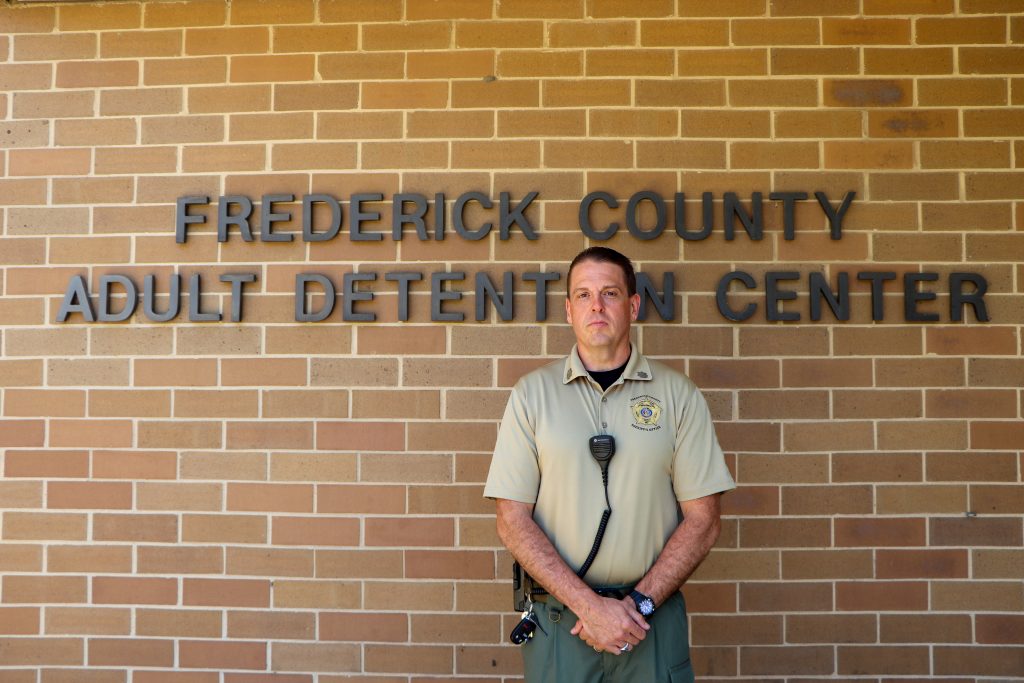
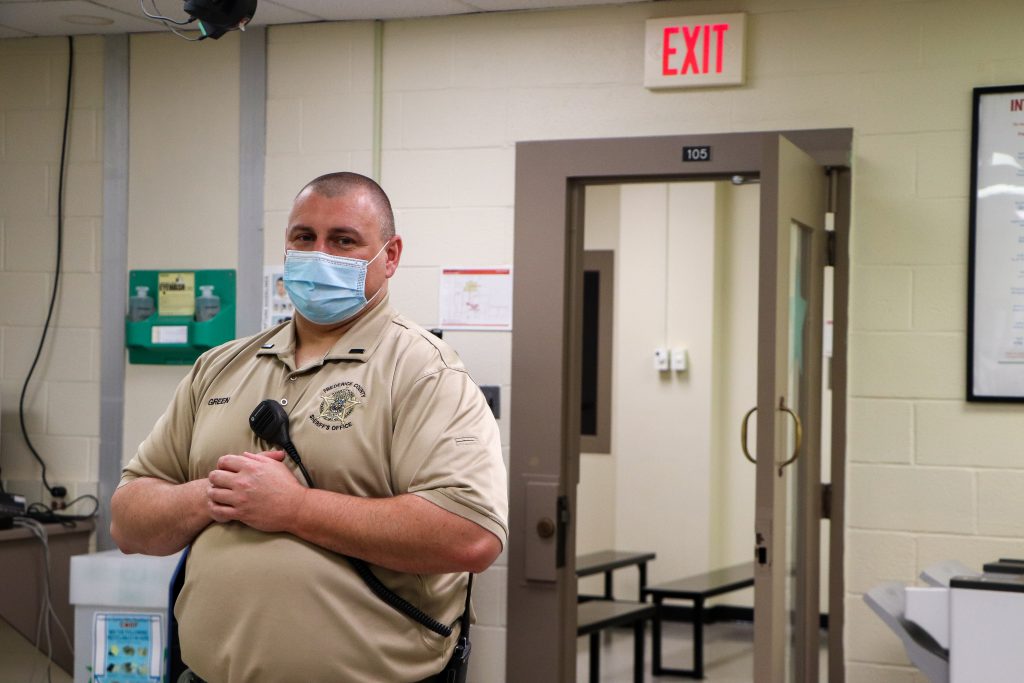
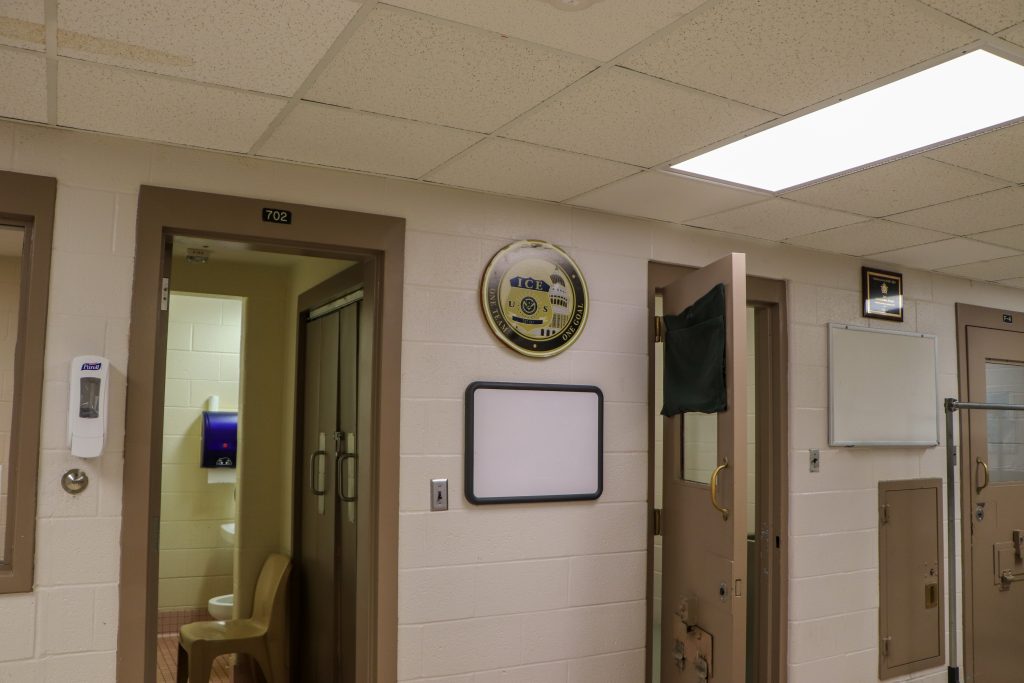
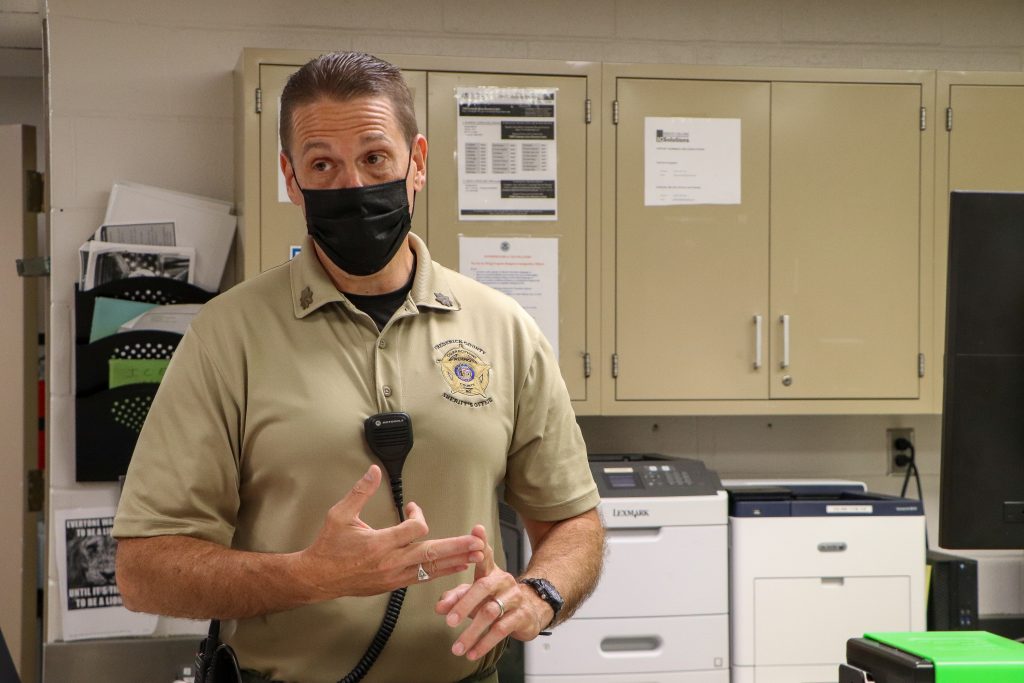
Immigration activists in Frederick County have repeatedly raised concerns about the 287(g) agreement, signed in 2008. On a frigid night in February, protesters demanded an end to the partnership and the removal of longtime Sheriff Chuck Jenkins.
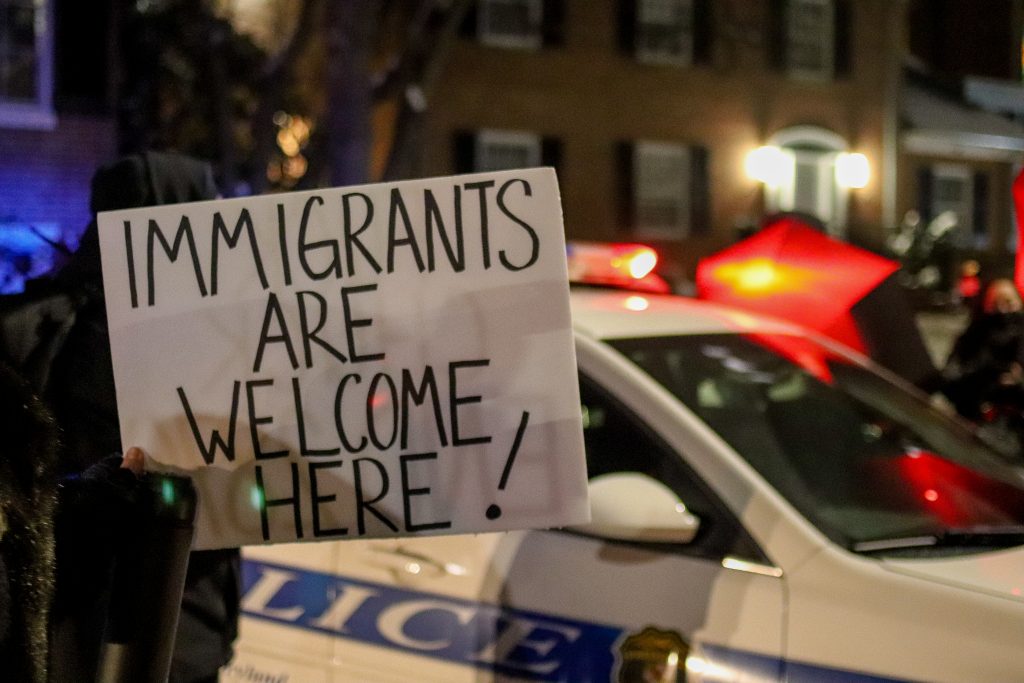
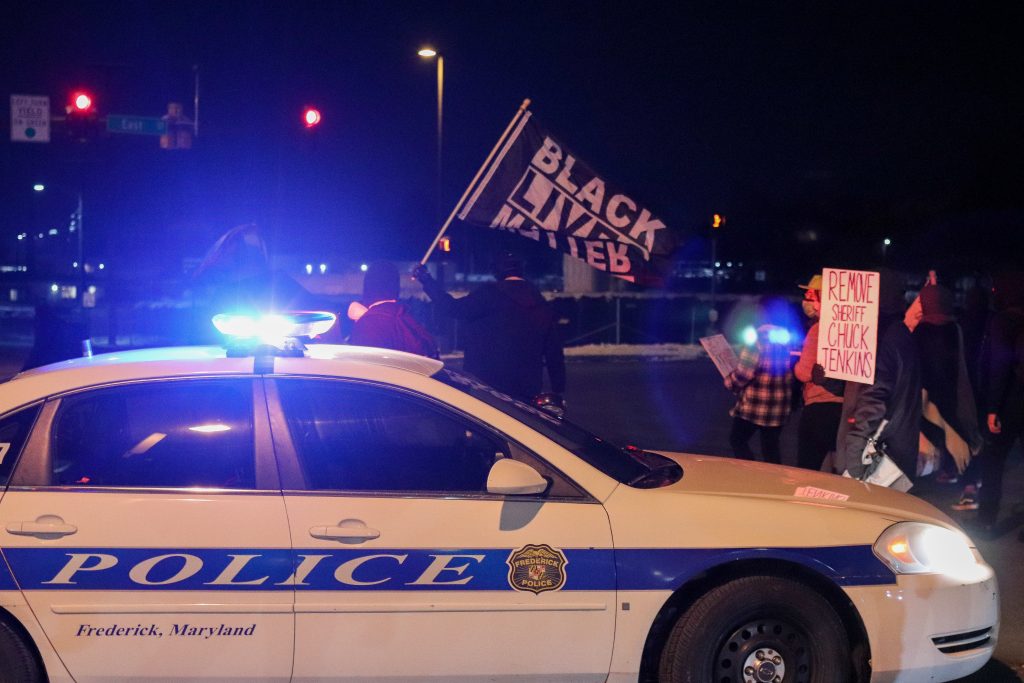
Protesters marched in February against the 287(g) program. Sheriff Jenkins said the program has helped keep violent criminals off the streets.
A Frederick County resident peers out a window to the street below, where protesters were marching. The county’s demographic has shifted in recent years, becoming increasingly diverse.
